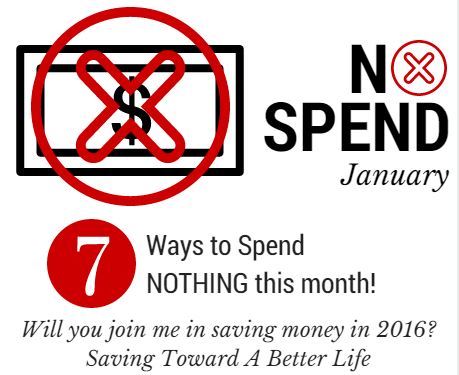If you are following the Be A Better Couponer portion of the New Year’s Resolution Series, here is part 3 – Handling Coupon Rejection!
If you use coupons, you will eventually have a cashier who will resist you. It may be over a trial-sized item, it may be over the cashier’s ability to read and comprehend, it may be over a store policy, it may be over coupon overage. Other times, it just won’t be worth the hassle or time it takes to argue for your coupons, or maybe you’ll encounter a cashier that won’t budge. I used to be a little shy when it comes to things like this, but I have learned to stand up for myself since I’ve been couponing. You just don’t get between a woman and her coupons!
I know it’s intimidating to be questioned about your coupons, especially when there are people in line behind you and you’re not sure what to say. The best thing is when everything works flawlessly, but we all know that doesn’t always happen. I hope this guide helps you learn to stand your ground when a cashier wrongly denies a particular coupon. We’ll talk about one general rule and some specific examples of just what to say to make cashiers undestand why you should be allowed to use your coupons. This will help make your coupon usage as stress-free as possible.
- The first rule is to say as little as possible.
Silence is a powerful tool. If the coupon beeps, say nothing until you are spoken to, even if you know what is wrong. Your job at that moment is to stand there with an expression of mild interest on your face, but nothing more than that. You are projecting to the cashier that you are confident that, whatever is wrong, s/he can fix it. People appreciate that show of faith, even if they don’t realize what you’re doing. When they start muttering about how it’s not working, or looking around beeechingly, trying to figure out what’s gone wrong… still! Say nothing!
This was hard for me to learn, but it has been a valuable tool. I get my way in many more situations (and not just coupon-related) than I used to, based on this simple rule. My nature is to be helpful, and tell the person what is wrong. The thing is, they don’t really want to know what’s wrong, they just want it to not be happening. For example, a coupon beeps because it’s for $1 off a $.97 item. I know that it’s beeping because there’s overage. If I say that, then there is a much higher chance that when they fix the problem, they will do so by adjusting the coupon down. I don’t want them to do that. Silence makes people faintly uneasy and it becomes easier to just hit the override button (which is what they should be doing anyway) than it is to question it.
Another very important reason that this is effective is simply that if you have a ready explanation for every single situation and you start telling the cashier how to do his or her job, you end up looking guilty, or like you’re trying to get them to do things they shouldn’t. Then they’re just going to be even more watchful about the next coupon.
I feel sneaky and manipulative telling you this, but it’s a trick I adapted from a friend and it works really, really well. Act innocent, say as little as possible.
That rule out of the way, let’s move on to the most common things that cashiers might say or do to reject a coupon.
- “I can only accept one of these coupons because it says right here, “one coupon per purchase.”
This is probably the most common thing you will encounter–say, you have bought three boxes of cereal, and the three identical coupons you have say “one coupon per purchase.” I didn’t know what to say to this at first, and I always lost the argument when I tried to explain it to them. Not anymore! The trick to this one is to physically touch each box of cereal as you tell them, “Yes, and this is a purchase, and this is a purchase, and this is a purchase…” You can then add that if they meant that you could only use one, period, it would say “one per transaction”, but it doesn’t. Knock on wood, but I have won every argument about this so far now that I can explain it this way. If they still argue–cheerfully agree, and then split your one simple transaction up into three transactions, using one coupon per transaction. Stating your intent might be enough, because when you put it that way, it sounds ridiculous. There are some situations in which this won’t work (say, if you have to buy a certain number for a specific promotion), so in that case, talk to a manager and explain it the way you just did to the cashier who wouldn’t listen (or is likely just afraid to do it wrong).
- “This coupon is not valid because it’s not meant for trial-sized items.”
“The coupon says ANY.” Some coupons aren’t valid for trial items, but hopefully, you’ve already checked yours for the “excludes trial sizes” disclaimer. If you think about it… a coupon is an invitation to try a particular type of merchandise. Getting a trial free may not be what a manufacturer would prefer, but I would think that they would rather you try out their product than not try out their product, if it came right down to it.
On that note, there is a difference between “trial” and “travel”. A good example of this is the Johnson & Johnson First Aid To Go kits that sell for about a dollar in most stores. They’re located in the travel/trial section, but they’re not trial items. Seriously, think about it. What are you supposed to be trying out? Whether or not you like your band-aids to come in a convenient white box? This argument may help in a pinch. Incidentally, Johnson & Johnson confirmed that they consider this item a travel item and not a trial, so if your coupon says “excludes trial items”… you can still use them on these box. And for what it’s worth, everyone loves them because they’re just so darned cute.
- “But that would make this item FREE.”
“No, I am paying for it with a coupon.” Actually, this one can be used in a variety of situations. It is really important to remember that coupons are just like cash in many ways. The stores aren’t giving you discounts because you happen to have a piece of paper with you. The manufacturer is giving you this discount in order to get you to buy their product. The store is reimbursed for the full face value of the coupon, plus eight cents or so. It says so right there on the coupon. So ironically, you could say that they are making more money off couponers than non-couponers. If you drill this into your brain–that you are PAYING with a coupon, not just spending less money because of using a coupon–it will also help you feel less like you are robbing them blind when you walk out of there with bags of merchandise and a receipt totaling $.47. (As hard as it may be, you should try to avoid snarky comments, like “why else would I be buying it?” or “DUH.” They really hate that.)
- “We can’t accept a coupon for more than the product is worth.”
There are too many variables for this one to give just one answer. Know the coupon policy for the store you’re at. Some stores have corporate policies that direct them to do certain things. For example, at CVS, the coupon always beeps if there’s overage, and they will adjust it down. (At my store, they always ask permission.) That’s what they want to happen, so if a rogue cashier gives you a denial, request to speak to a manager or call corporate while you’re still standing there. Many stores will want to adjust the coupon down to the purchase price of the item. I personally feel this is straight-up coupon fraud on the part of the stores, but I never argue it. Overage is a privilege, not a right. (Having said that, if it was really good overage and I knew that it would usually work, I would possibly request that the items be removed from my order if they started hassling me over it. Walmart gives me overage 95% of the time–there’s something to be said for minimum wage drones who hate their jobs–so I’d really just rather buy it some other time, especially if I was purchasing multiple items.
- “We don’t accept internet coupons/photocopies.”
Okay, some stores don’t, as a matter of corporate policy. Some stores have a policy of not accepting them, but individual stores override that decree. So, you need to know what you’re dealing with. Walmart, for example, DOES accept internet coupons, as a matter of corporate policy, but a couple of cashiers at my store were taught in their training not to accept them. Ask for a manager. Say, “Walmart corporate policy is to accept internet coupons.” If that doesn’t sway them… call corporate.
- “You can’t MAKE money using coupons! Stores won’t pay you to take stuff home, no matter what Oprah says!”
Smile and nod, cause they won’t like you any better if you burst their bubble…
(This actually happened to me, including the Oprah reference. I was checking out with an order that I was making a profit on at the time.)
- “You can’t use this coupon and I am not going to change my mind no matter what you say.”
(I’m paraphrasing, but you get the idea.) If you have a cashier who refuses to back down and you don’t feel like the hassle of calling a higher authority (perhaps, as in the case that prompted this post, you are at Walmart, in another town, and you know that this won’t even be an issue in another store anyway, and you have a cart full of frozen food products that have already been in your buggy too long while you waited in the slowest lines ever), then my favorite thing to say is simply, “That’s fine. I will be happy to spend that money somewhere else,” and remove those items from the transaction. (If you are more hard-core about it, leave everything there, not just the items that you’re being harassed over.)
Then, go home and email or call corporate or the store management if you’ve got a case. You may at least get an apology out of it, and possibly some other sort of compensation… and with any luck, the store will be better prepared next time.
This post was written for me last year by Kisha at More Than A Little.











Follow Me!